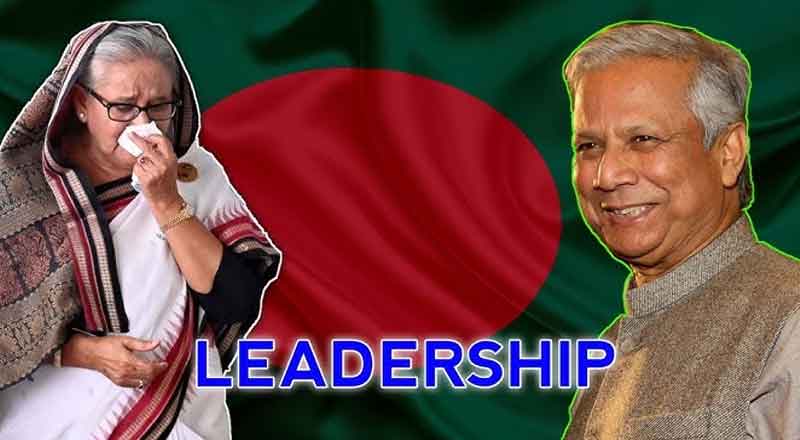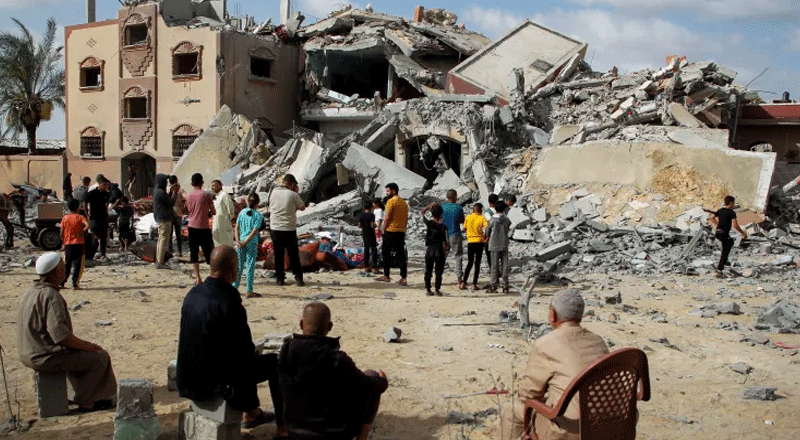Political Turmoil and Sheikh Hasina’s Escape
Bangladesh has witnessed heightened political and social unrest in recent months, marked by intense protests and violence. Former Prime Minister Sheikh Hasina, known for her stronghold over the Awami League, fled the country on August 5, citing a threat to her life amidst mounting pressure from student-led protests and accusations of government failures.
In a virtual address to the Awami League in New York, Sheikh Hasina accused Muhammad Yunus, the head of the interim government, of orchestrating mass killings and targeting minorities. Her statements have added fuel to an already volatile political landscape, shedding light on the deep divisions and ongoing struggles for power in Bangladesh.
Accusations Against Muhammad Yunus
Sheikh Hasina directly blamed Muhammad Yunus and student coordinators for “meticulously planned” mass killings in Bangladesh. She alleged that Yunus masterminded attacks on religious minorities, including Hindus, Buddhists, and Christians, and was responsible for violence against religious institutions such as temples, churches, and ISKCON centers.
Hasina’s accusations extend beyond Yunus to include Tarique Rahman, a Bangladesh Nationalist Party (BNP) leader operating from London. Rahman allegedly claimed that continued fatalities would destabilize the government, signaling a broader conspiracy to topple the administration.
Targeting Minorities: A Recurring Issue
In her address, Hasina highlighted the systematic targeting of minorities in Bangladesh, questioning the motives behind such attacks. She referenced recent incidents where Hindu monks were arrested in Dhaka, escalating communal tensions.
“Today, teachers and police are being attacked and killed. Hindus, Buddhists, and Christians are being targeted. Churches and temples are under assault. Why are minorities being targeted in Bangladesh now?” she asked.
The targeting of minorities in Bangladesh has been a contentious issue, often used as a political tool by opposing factions. Hasina’s remarks draw attention to the fragility of interfaith harmony and the precarious position of minorities amidst the nation’s political upheaval.
The Escape to Avoid Bloodshed
Sheikh Hasina justified her decision to flee the country, citing concerns about a potential massacre akin to the assassination of her father, Sheikh Mujibur Rahman, in 1975. According to Hasina, plans were underway to assassinate her, and her refusal to order security forces to fire on protesters demonstrated her desire to avoid mass casualties.
“I did not want a massacre. If I wanted to hold on to power, there would have been bloodshed. I told my security not to open fire,” she said. Her decision to leave the Gana Bhavan (her official residence) underscores the gravity of the situation and her acknowledgment of the untenable position her government had reached.
A Nation in Turmoil
The accusations and counter-accusations in Bangladesh highlight the deep fractures within its political system. Sheikh Hasina’s claims against Muhammad Yunus and student leaders point to a broader struggle for power, with minorities often caught in the crossfire. Her escape to avoid a massacre underscores the high stakes and intense pressures that leaders face in such turbulent times.
As Bangladesh grapples with political instability, communal violence, and leadership transitions, the path forward remains uncertain. The nation must confront its internal divisions and ensure that power struggles do not compromise the safety and rights of its citizens, particularly its vulnerable minority populations. The resolution of these crises will require not only political will but also a commitment to rebuilding trust and fostering unity in a deeply divided society.
(With inputs from agencies)





